The Prime Minister In Waiting – but who really is Keir Starmer?
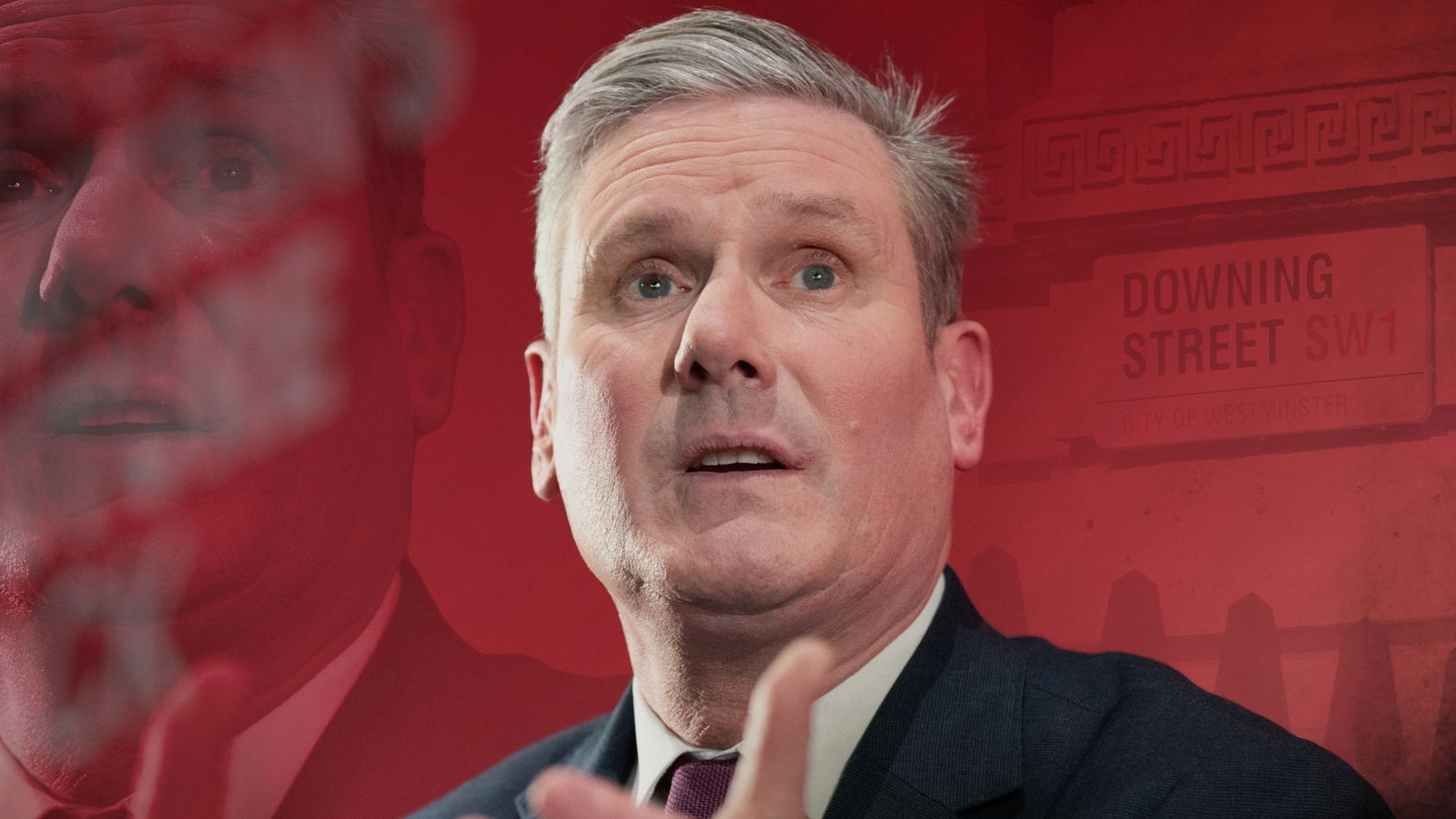

Sir Keir Starmer is a Prime Minister In Waiting.
The job is not in the bag unless and until the votes have been cast in Labour‘s favour – as he and his close advisers are the first to point out.
But all the circumstantial evidence from elections and opinion polls suggests that Starmer is far and away the person most likely to be the occupant of 10 Downing Street after the general election due in the next 11 months.
PMIW is not a status conferred on all opposition leaders. Interest only peaks when a change of government is in the air. Scrutiny turns from the struggling incumbent prime minister to new hope.
Tony Blair, before 1997, and David Cameron, before 2010, both basked in the attention.
Starmer is less comfortable in the spotlight. Yet, in spite of his reticence, at the equivalent stage in his pursuit of power he is more of an odds-on favourite to take over the government than Blair or Cameron ever were.
So, who is Sir Keir Starmer, the UK’s likely next prime minister? A flurry of interviews and profiles are all part of the full PMIW treatment, topped off by a campaign biography of the candidate.
On cue, Keir Starmer: The Biography is published next week. The blurb insists the book is “authoritative – not authorised”, but it is based on “many hours of interviews” with Sir Keir, his family, friends and close colleagues.
The original plan was for Tom Baldwin, a Times journalist turned spokesman for then Labour leader Ed Miliband, to ghost write a Starmer autobiography. With typical modesty, Starmer abandoned that idea and decided to leave Baldwin to produce his own sympathetic portrait independently.
Advertisement
The book was “written”, Baldwin says, “with the respect a serious grown-up leader deserves”.
A lot changes when a political leader becomes a PMIW. At the recent Munich Defence Conference, the diaries of foreign leaders quickly clear if for a meeting with the coming man.
Starmer’s dance card there included US Secretary of State Anthony Blinken, EU Commission President Ursula von der Leyen, NATO Secretary General Jens Stoltenberg and heads of government of Germany, Finland, Estonia and Ireland.
Rishi Sunak did not attend. David Cameron and Grant Shapps represented the UK government.
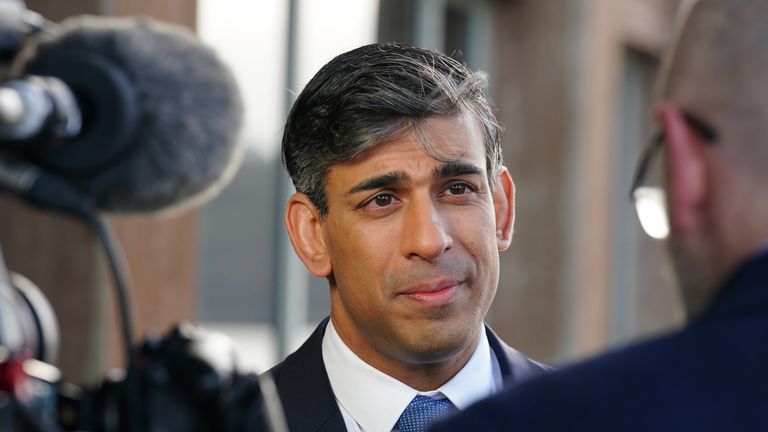
As is normal practice before a general election, the opposition have been granted access to senior civil servants to discuss their plans for government if they win.
These activities are being scrutinised closely, especially when they involved Sue Gray, the widely feared former civil service enforcer who is now Starmer’s chief of staff.
Gray’s name was linked – inaccurately and inflammatorily – to the talks with Speaker Hoyle over the Israel-Gaza votes in the Commons. Fallout is still crashing down from Hoyle’s decision to break with precedent.
Meanwhile, rightly or wrongly, the UK parliament’s agreed position on “an immediate ceasefire” is the amendment, slowly and painfully put together by the leader of the opposition.
For all the sound and fury, the tectonic plates under British government seem to have shifted prematurely on this foreign policy matter.
One recurring feature of Starmer’s life story is that he has been “a lucky general”, as Napoleon put it.
Circumstances have often gone in his favour and he has made the best of them, although he has done little or nothing to bring them about.
He owes his PMIW standing in large part by default to the self-destructive missteps of recent Conservative governments.
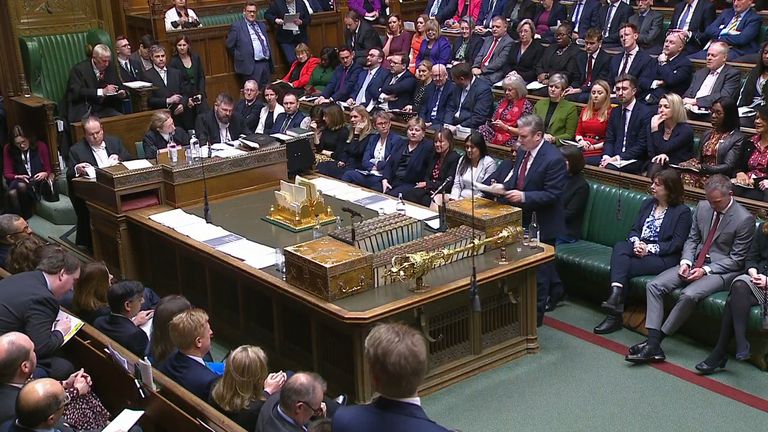
Baldwin cannot take his thoroughly researched book past the start of this campaign year into contemporary events.
He can tell the reader a great deal about how Starmer got here and delve into his life story.
Starmer habitually tags his public appearances with the terse summary “my mother was a nurse, my dad was a toolmaker, money was short, the telephone was sometimes cut off”.
This sends out a signal to Britain’s class-conscious society that first impressions are wrong about The Right Honourable Keir Starmer KC MP.
Starmer is neither “posh” nor a hereditary baronet, but he is hoping to emulate Labour’s election winning trio of Prime Ministers Attlee, Wilson and Blair.
The Labour frontbencher Nick Thomas-Symonds has written biographies of Attlee and Wilson and tells Baldwin that “Keir is far more working class than either of them, not only in terms of the background alone but because it’s combined with a defining story of aspiration”.
Read more:
Keir Starmer is the anti-charisma candidate
Are we in for one of the ‘dirtiest’ election campaigns ever?
Starmer will be the first prime minister since Gordon Brown not to have been an undergraduate at the University of Oxford, although after Leeds University he continued his upward trajectory there as a post-graduate.
He was the only one of his siblings to go to a selective grammar school in Reigate.
The only time his father praised him, he said he was proud of him passing the 11-plus, later adding that he was also as proud of his brother, who had learning difficulties.
His childhood was happy, but hard graft. His father Ron was remote and his mother suffered from a debilitating illness. Starmer flourished nonetheless.
He was a key player in local amateur football teams and won a flute scholarship to the Guildhall School of Music.
In words that could sum up his approach to other aspects of his life, Starmer comments of the Guildhall that there were people there who were “properly gifted… whereas I was just someone who had got to a certain level through practice, repetition and hard work”.
Starmer, who is 62, came late to Westminster politics and was only elected to his seat of Holborn and St Pancras, in inner north London, in 2015.
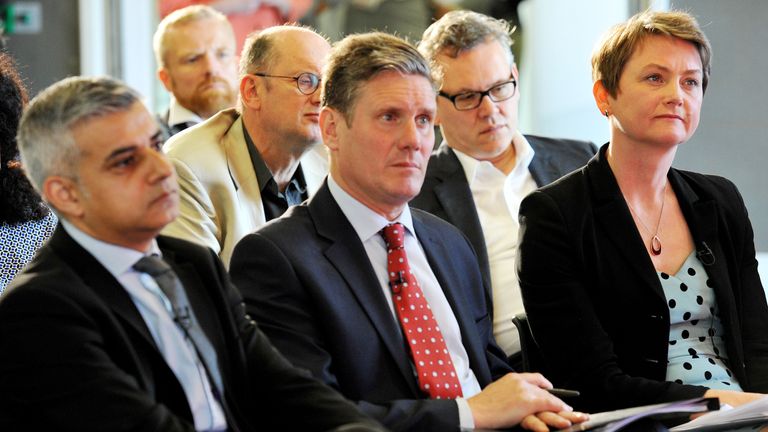
Angela Rayner, the deputy leader of the Labour Party, describes Starmer as “the least political person in politics I know”. Yet his commitment to Labour runs through his life.
His parents named him after the party’s founder Keir Hardie. At election times, their pebble-dashed home was festooned with Labour posters.
Keir joined the Young Socialists as a teenager and canvassed on the doorstep. Members of the public complained to his headmaster about rowdy arguments on the top of the bus to school, often with a classmate who remains a friend, Andrew Sullivan, now a leading liberal conservative commentator in the US.
As a young barrister, Starmer joined the progressive Doughty Street Chambers and sought out human rights cases, especially fighting the death penalty.
Read more:
Liz Truss says world ‘needs Republican back in White House’
Labour shifts its ceasefire stance – but may have fallen into a trap
1 – App Download – App Download Widget
His switch to become Director of Public Prosecutions was a surprise “curveball” for his friends and fellow lawyers.
His motives are not adequately explained in the biography beyond a comment that he thought everyone would benefit from swifter and more efficient justice.
For all his ambition, Starmer applies strict standards to himself. He has nearly quit twice since becoming leader – after Labour lost the Hartlepool byelection to Boris Johnson and when he said he would resign if fined over “beergate”, the drink with party activists during the pandemic.
The overriding image of Starmer from the book is of a determined and pragmatic man, driven to win and prepared to compromise to get there.
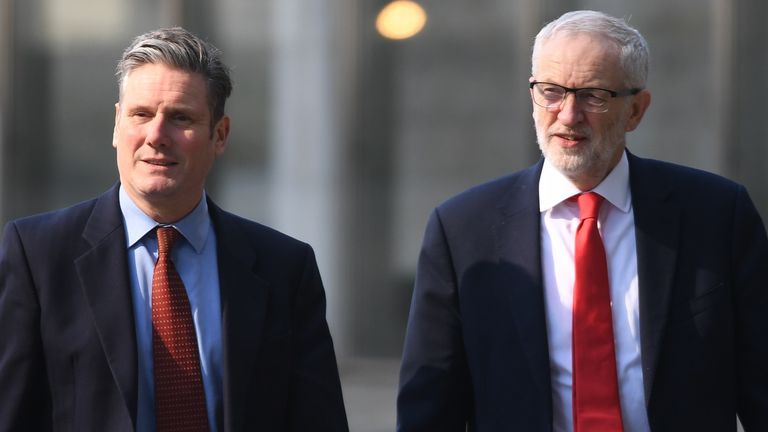
He justifies staying in Jeremy Corbyn’s cabinet, calculating that only someone who had served under him would be elected by the membership as the next leader.
Later, his luck held as Corbyn and his close allies disqualified themselves over antisemitism.
Starmer’s friends say the humour, generosity and loyalty of the man they know do not come across from the politician they see on the television.
His biographer makes the interesting observation that public exposure is loosening Sir Keir up.
Labour’s published proposal for transforming Britain is modest, and the economic circumstances are constraining.
For all that, the Prime Minister In Waiting’s last words in the book are “I just want to get things done”.